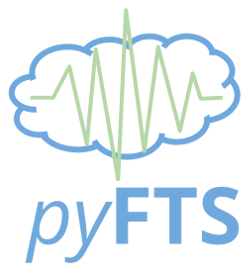pyFTS.models.nonstationary package¶
Submodules¶
pyFTS.models.nonstationary.common module¶
Non Stationary Fuzzy Sets
GARIBALDI, Jonathan M.; JAROSZEWSKI, Marcin; MUSIKASUWAN, Salang. Nonstationary fuzzy sets. IEEE Transactions on Fuzzy Systems, v. 16, n. 4, p. 1072-1086, 2008.
- class pyFTS.models.nonstationary.common.FuzzySet(name, mf, parameters, **kwargs)[source]¶
Bases:
pyFTS.common.FuzzySet.FuzzySetNon Stationary Fuzzy Sets
- location¶
Pertubation function that affects the location of the membership function
- location_params¶
Parameters for location pertubation function
- membership(x, t)[source]¶
Calculate the membership value of a given input
- Parameters
x – input value
t – time displacement or perturbation parameters
- Returns
membership value of x at this fuzzy set
- noise¶
Pertubation function that adds noise on the membership function
- noise_params¶
Parameters for noise pertubation function
- width¶
Pertubation function that affects the width of the membership function
- width_params¶
Parameters for width pertubation function
- pyFTS.models.nonstationary.common.fuzzify(inst, t, fuzzySets)[source]¶
Calculate the membership values for a data point given nonstationary fuzzy sets
- Parameters
inst – data points
t – time displacement of the instance
fuzzySets – list of fuzzy sets
- Returns
array of membership values
pyFTS.models.nonstationary.cvfts module¶
pyFTS.models.nonstationary.flrg module¶
- class pyFTS.models.nonstationary.flrg.NonStationaryFLRG(LHS, **kwargs)[source]¶
Bases:
pyFTS.common.flrg.FLRG- get_lower(*args)[source]¶
Returns the lower bound value for the RHS fuzzy sets
- Parameters
sets – fuzzy sets
- Returns
lower bound value
- get_membership(data, *args)[source]¶
Returns the membership value of the FLRG for the input data
- Parameters
data – input data
sets – fuzzy sets
- Returns
the membership value
- get_midpoint(*args)[source]¶
Returns the midpoint value for the RHS fuzzy sets
- Parameters
sets – fuzzy sets
- Returns
the midpoint value
pyFTS.models.nonstationary.honsfts module¶
pyFTS.models.nonstationary.nsfts module¶
pyFTS.models.nonstationary.partitioners module¶
- class pyFTS.models.nonstationary.partitioners.PolynomialNonStationaryPartitioner(data, part, **kwargs)[source]¶
Bases:
pyFTS.partitioners.partitioner.PartitionerNon Stationary Universe of Discourse Partitioner
- class pyFTS.models.nonstationary.partitioners.SimpleNonStationaryPartitioner(data, part, **kwargs)[source]¶
Bases:
pyFTS.partitioners.partitioner.PartitionerNon Stationary Universe of Discourse Partitioner
pyFTS.models.nonstationary.perturbation module¶
Pertubation functions for Non Stationary Fuzzy Sets
pyFTS.models.nonstationary.util module¶
Module contents¶
Fuzzy time series with nonstationary fuzzy sets, for heteroskedastic data
